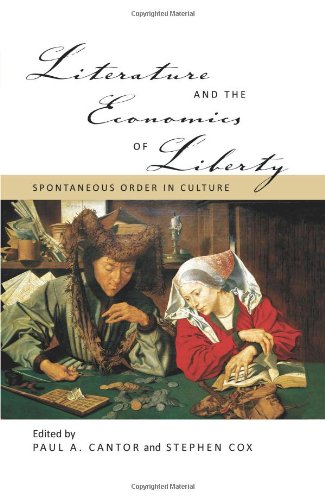Literature and the Economics of Liberty
The economic interpretation of literature is dominated by ideas derived from Marxism — ideas that demonize the market as the enemy of all that is good.
This book, edited by well-known literary critics Paul Cantor (University of Virginia) and Stephen Cox (University of California, San Diego) turns the prevailing paradigm upside down — criticism (and a theory of criticism) from a pro-market point of view.
The appearance of this work, many years in the making, is a major publishing event for the Mises Institute. It means the expansion of a theoretical paradigm into a new, exciting area. Professor Cantor was a student of Ludwig von Mises before turning his attention to literature, and Professor Cox is editor of a monthly periodical on libertarian ideas. This treatise combines their academic specializations with their love of liberty to provide a new way of looking at literature.
For free-market advocates, it means the discovery of a completely new area of friends in a new sector, friends that we didn't know we had, people like Willa Cather for example. Chapter after chapter maps this out and proves it with detailed analytics and highly sophisticated, yet readable, criticism of the works in question.
The book argues that literature is one of the most powerful reflections of humanity's freedom, spontaneity, and creativity. Great works of literature buck the trend and break the mold. No one, not even their authors, can predict where they will come from or what form they will take.
They may at first appear chaotic because they violate established literary norms, and only time and greater familiarity reveals the inner logic of their form. Perpetually open-ended in its formal possibilities, literature often celebrates the open-ended nature of human life in general.

